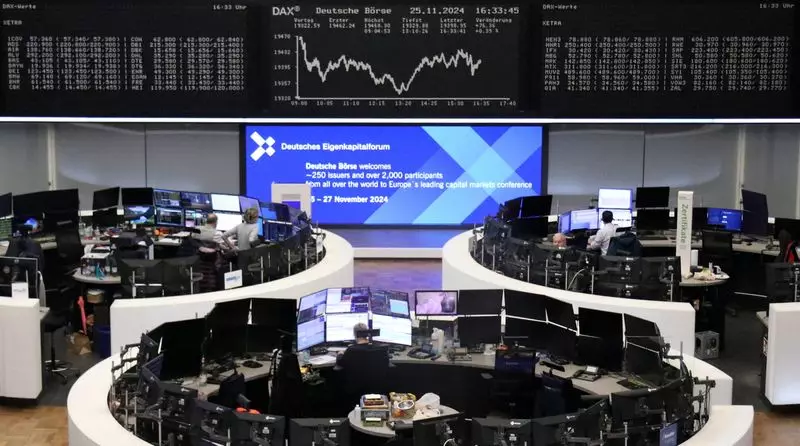Despite the recent political upheaval in France, European stocks have demonstrated remarkable resilience, with many indices reaching near record highs. On Thursday, the pan-European STOXX 600 index gained 0.2% as of 0945 GMT, marking its sixth consecutive day of increases. Investors appear largely unfazed by the events surrounding Prime Minister Michel Barnier’s government, which faced a vote of no confidence—a move anticipated by many analysts. This outcome, while significant, did not elicit significant panic in the markets, suggesting that investors had prepared for such a scenario.
The ongoing political instability poses risks, particularly concerning the formation of a stable government and the creation of a budget for 2025. With Barnier expected to resign, he could end up being the shortest-serving prime minister in recent French history. The French constitution does allow for special measures that might prevent drastic government shutdowns, similar to situations seen in the United States. It remains imperative for the new administration to quickly establish credibility and regain investor confidence to avoid prolonged uncertainty.
Market analyst Susannah Streeter noted that the muted reaction from equity markets underscores investors’ expectations. The decline in the risk premium associated with French debt compared to German Bunds suggests a more favorable view of French securities than in recent months. Investors may have expected a “buy on rumors, sell on news” approach, where the anticipation of a government change led to strategic buying, illustrating a deeper understanding of market dynamics.
Key sectors within the French economy saw a range of performances on the stock market. Major banks, including BNP Paribas, Société Générale, and Crédit Agricole, benefitted from the general market stability, each rising between 1.7% and 2.8%. Meanwhile, amid varying news cycles, German copper producer Aurubis experienced a notable surge of 14% following a robust dividend announcement. Conversely, the oil sector showed mixed results, with Shell experiencing a minor decline of 1% amidst its merger with Equinor, while TotalEnergies saw an uptick due to an upgrade in their stock ratings.
Amidst these changes, President Emmanuel Macron is set to make a crucial televised address, potentially unveiling a new prime minister and outlining the government’s direction moving forward. With critical national events, such as the reopening of the Notre-Dame Cathedral scheduled for Saturday, the public’s response will likely shape investor sentiment and overall market stability. As France navigates this political landscape, the ability of leadership to instill confidence will be essential in ensuring the nation can maintain economic momentum amidst political uncertainties.
While France grapples with government instability, the broader European market has displayed commendable resilience, reflecting prepared market sentiment and adaptive investor strategies. Observers will undoubtedly watch closely as events unfold in the coming weeks, keen on understanding the implications for both the French and European economic landscapes.

